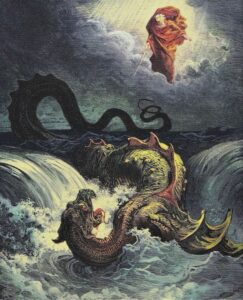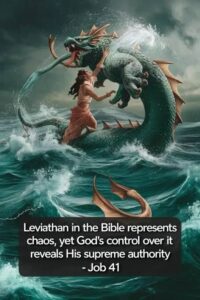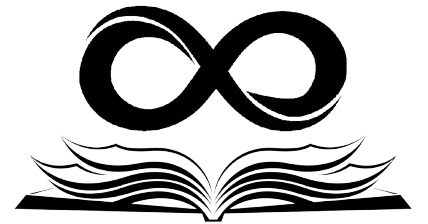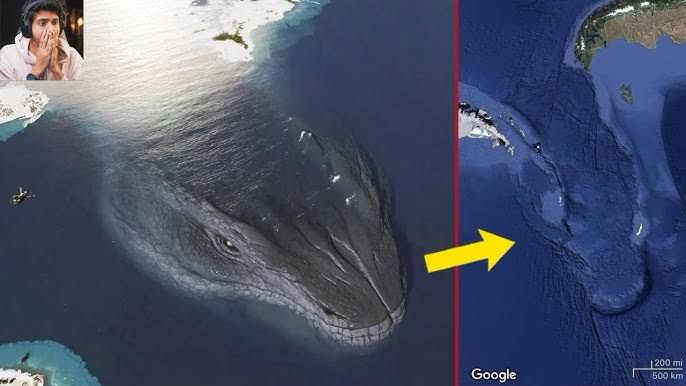“Leviathan: Unraveling the Mystery of the Sea Monster of the Deep”
For centuries, the name Leviathan has stirred both awe and terror in the minds of those who hear it. From ancient religious texts to modern conspiracy theories, the Leviathan remains one of the most mysterious and debated sea creatures in history. But what exactly is it? A myth? A misunderstood animal? Or something more?
Let’s dive into the deep and explore the enigma of the Leviathan.
- Biblical Origins: The Beast from the Depths
The earliest and most prominent references to it come from the Bible, particularly in the Old Testament:
- In Job 41, the Leviathan is described in vivid detail as a mighty sea creature, untamable and terrifying. It breathes fire, has impenetrable scales, and causes the sea to churn.
- Psalms 74:14 and Isaiah 27:1 mention God defeating or punishing the Leviathan, portraying it as a symbol of chaos and evil.
In Hebrew, the term “Leviathan” roughly translates to “twisted” or “coiled,” which reinforces the image of a great serpent or sea dragon.
- Symbolism: Chaos, Power, and Divine Authority
In Jewish and Christian theology, the Leviathan often represents:
- The chaos of the primordial sea before creation.
- A force of evil that must be conquered by divine power.
- Sometimes, even the embodiment of Satan or sin.
The defeat of it is symbolic of order triumphing over chaos, good over evil.
- Could the Leviathan Be Real? Natural Theories
Many scholars and scientists have attempted to link it to real-world animals, such as:
- Crocodiles: Some believe the biblical Leviathan could have been inspired by the Nile crocodile, especially in Job’s description.
- Whales or Giant Squid: Early encounters with these massive marine animals, especially by sailors unfamiliar with ocean life, could have birthed monstrous legends.
- Extinct Creatures: Some propose prehistoric marine reptiles like the Mosasaurus or Pliosaur as possible inspirations, with fossil discoveries fueling the myth over time.
- In Myth and Literature: The Leviathan’s Cultural Legacy
Beyond religion, it has a strong presence in folklore and literature:
- In Leviathan (1651), philosopher Thomas Hobbes used the creature as a metaphor for a powerful state and social contract.
- In Cthulhu Mythos by H.P. Lovecraft, Leviathan-like beings symbolize unknowable horrors from the deep.
- Pop culture, including anime, games, and movies, often reimagines Leviathan as a monstrous boss or godlike entity.
- Modern Mysteries: Cryptozoology and Deep-Sea Secrets
Despite modern science, Earth’s oceans remain largely unexplored over 80% remain unmapped. Some cryptozoologists (those who study hidden or legendary animals) argue that unknown sea monsters might still dwell in the deep.
Could it be a forgotten creature of the abyss or merely a psychological projection of humanity’s fear of the unknown?


Myth or Monster?
Whether the Leviathan is a mythical sea dragon, a misidentified creature, or a powerful symbol, its impact is undeniable. It lives on in our stories, our fears, and our imagination remind us of how little we still understand about the deep… and perhaps about ourselves.
Have a look on this blog –https://theinfiniteperspective.com/fighting-the-toughest-battle-within-our-own-hearts/




